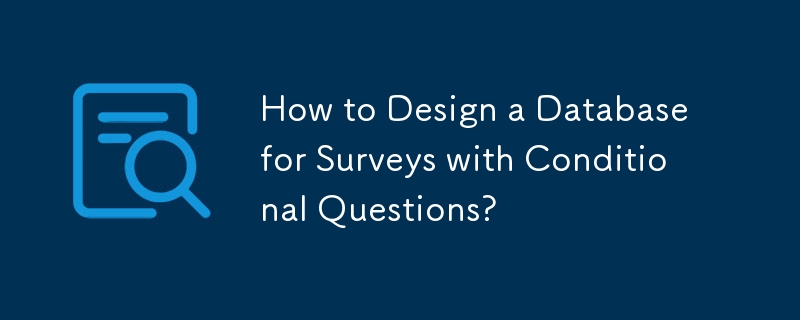

In designing a survey database that accommodates conditional questions, you can opt for a schema including the following tables and relationships:
To introduce conditional question functionality, consider these additional tables:
The QuestionCondition table holds the logical conditions for each question. For instance, a condition might state that Question B is only visible if the answer to Question A is "A." The AnswerDependency table establishes the connections between questions and their conditions.
Suppose you have two questions: "Do you buy cigarettes?" (Question A) and "What's your favorite cigarette brand?" (Question B). You can create a condition stating that Question B is only displayed if the answer to Question A is "Yes."
The AnswerDependency table would then link Question B to this condition, ensuring that it appears only to users who answered "Yes" to Question A.
The above is the detailed content of How to Design a Database for Surveys with Conditional Questions?. For more information, please follow other related articles on the PHP Chinese website!




